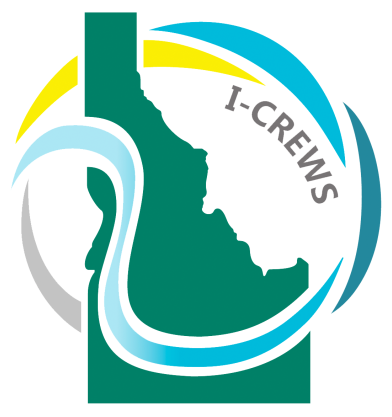Community Integration
Community Integrated Programs (CIPs) are collaborative projects involving community members, students, and faculty. These projects aim to address community-identified issues, particularly those related to energy and water systems. CIPs foster interdisciplinary learning, combining academic knowledge with local and Indigenous knowledge. By working together, participants develop equitable solutions to complex energy and water challenges.
Community Integrated Projects contribute to the overall goals of ICREWS by recognizing that communities are actively engaged in producing and applying knowledge. These courses value local and Indigenous knowledges. A goal of CIPs is to deepen community-Tribal-University partnerships and relationships toward participation in the co-creation of equitable energy-water futures.
Examples of CIP
Co-learning builds capacity for faculty and partners to develop and share research together and makes participatory research more equitable by recognizing the knowledge and work of non-university contributors. CIPs will be created by individuals or groups, who may be faculty,
members of the community, or professional staff (e.g., Tribal employees or industry employees), and can partner with the communities engaged in ICREWS (Coeur d’Alene Tribe, Shoshone-Bannock Tribes, Treasure Valley) and/or programs like the Tribal Nation Research Network (TNRN), College Assistance Migrant Program (CAMP), and College of Southern Idaho, a newly designated Hispanic Serving Institution. Partnerships are not limited to these communities and programs – these are simply listed as examples.
CIP 2024 Request for Applications
Priority deadline:
December 5, 2024
12:00 PM, PST
(with additional Spring semester rolling deadlines)
- PI’s at Idaho State University are expected to route applications through their Office of Sponsored Programs and obtain approval to submit prior to submission to the Idaho EPSCoR Office.
Award and Budget
Several $10,000 direct-cost awards will be granted under this request for applications (F&A will also be provided). Funding may be used as supplies and/or salary for the faculty/community partner or their CIP participants to create a CIP course related to I-CREWS research areas. Please provide the name(s) of the people or persons receiving salary support and estimated amounts of salary/fringe to each, if split, and/or the breakdown of supplies.
Eligibility
I-CREWS Tribal citizens and staff, community members, and staff and faculty at Idaho’s institutions of higher education (including primarily undergraduate institutions) are eligible to apply for this CIP funding. Prior or current involvement in the NSF EPSCoR RII Track-1 ICREWS project is NOT a prerequisite for participation in this CIP Funding program; however, applicants not yet involved in I-CREWS are strongly encouraged to contact I-CREWS leads at the respective institutions to explore alignment and synergies. All proposers should discuss creation of a CIP course with their supervisors and other members of their team prior to submitting a proposal.
Expectations
- The CIP course funds will be applied for the first time no later than Fall 2025. Ideally, course implementation will take place by Fall 2025. Funds may be used at the planning and implementation stages. Plans for expending funds should be discussed with institution leads.
- The proposing PI will be responsible for managing the activities of the award including logistics, gathering participant information, overseeing finances, providing information for evaluation and assessment, and submitting the final report. Awarded funds must be expended during the specific performance period of the CIP Funding project.
- PIs of CIP Funding awards must be willing to provide a brief report of the CIP Funding efforts and outcomes for quarterly internal I-CREWS meetings and for each annual report to NSF (normally prepared ~May).
Contact Information
To learn more about what has been done or envisioned for CIPs in the past, please reach out to one of the ICREWS working group team, who can be contacted by first reaching out to Karla Eitel (keitel@uidaho.edu).
